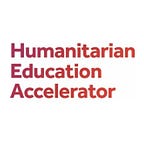World University Service of Canada (WUSC): Turning research into action
How WUSC is leveraging research findings and community feedback to adapt their remedial education model to better address refugee girls’ education needs in Kakuma and Dadaab.
Building the evidence base on what works (and what does not work) in education in humanitarian settings, through rigorous research, community feedback and sharing lessons between practitioners, is a core objective of the Humanitarian Education Accelerator (HEA). However, building the evidence is just part of the story. Translating evidence into action — through programme adaptation and ongoing flexibility — is crucial when it comes to implementing sustainable education programming that has long term positive impacts on learning and other educational outcomes.
Here are four ways that HEA grantee, World University Service of Canada (WUSC), is turning research and community feedback into action in their remedial education programming for girls in Kakuma and Dadaab refugee camps in Kenya:
- Through the HEA evaluation, WUSC learned that remedial education has greater potential for impact on girls from food secure households. The WUSC team in Kenya are therefore applying this knowledge to their Girls’ Education Challenge-funded initiative to join up their remedial programme with complementary WUSC interventions that target the most marginalized — for example conditional cash transfers, which can help contribute to household needs, including nutritious meals.
- The HEA impact study has also shown WUSC the value of co-creating research with community members, including engaging them in data collection. WUSC plans to continue to invest in community ownership of programming, as well as ensuring research outcomes are fed back to the community.
- WUSC also learned through the HEA research that remedial teachers need more help to design content for the remedial classes, in a way that truly addresses the knowledge gaps of learners. In response to this finding, WUSC have restructured their remedial teacher training modules to address this need. They have also introduced competency-based classroom observation tools to coach and support remedial teachers. Read more about their classroom observation tools.
- As WUSC expand their education work in other countries in East Africa, such as South Sudan and Uganda, they plan to take the HEA research findings into consideration to design new project components and take on board what has been learned around adaptive management.
Find out more from WUSC’s Evaluation and Learning Manager, Timothy Kinoti, on what WUSC have learned about research for humanitarian education programming, through the HEA:
